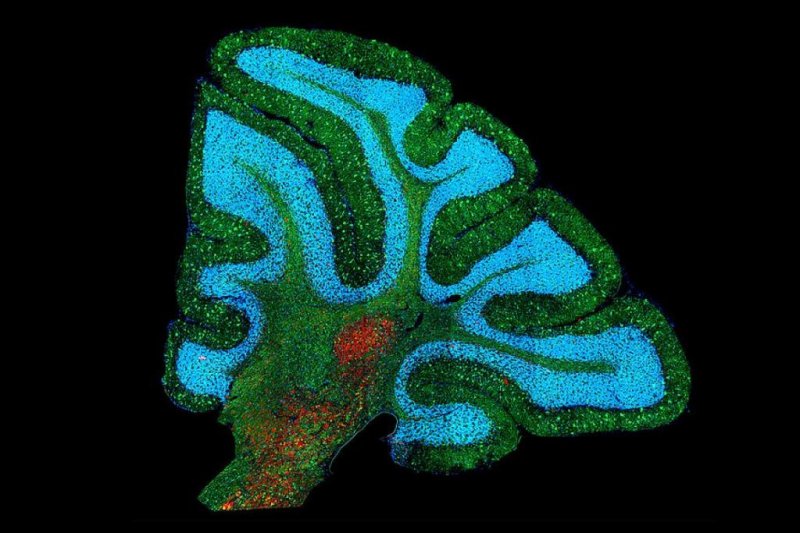Niemann-Pick disease type C1, a lipid storage disorder, as seen in a mouse cerebellum. Researchers have tested a drug that shows it is safe and effective at treating Niemann-Pick disease type C1. Photo courtesy NICHD
Aug. 11 (UPI) -- Researchers report that an experimental drug appears to be safe and effective at slowing the progression of Niemann-Pick disease type C1.
Niemann-Pick disease type C1 is a rare, fatal genetic disorder that affects children and adolescents causing progressive decline in neurological and cognitive function.
The study, by the National Institutes of Health, was published Aug. 10 in The Lancet, and show the the drug 2-hydroxypropyl-cyclodextrin, or VTS-270, was effective at slowing the progression of Niemann-Pick disease type C1 in a clinical trial.
"The results are very encouraging and support continued development of VTS-270 for treating NPC1," Dr. Forbes Porter, clinical director at NIH's Eunice Kennedy Shriver National Institute of Child Health and Human Development, said in a press release.
"Compared to untreated patients we followed in an earlier study, participants who received VTS-270 scored better on a scale used to evaluate disease severity and progression, including elements such as speech, cognition and mobility."
VTS-270 was tested on 14 participants age 4 to 23 who received the drug once a month for 12 to 18 months, and another group of three participants who received the drug every two weeks for 18 months. Participants were initially divided into two groups but when it appeared the drug was well tolerated, researchers increased the dose for all participants.
Researchers measured cholesterol levels because NPC1 symptoms come from cholesterol buildup in brain cells and found that after treatment with VTS-270, a molecule derived from cholesterol metabolism in neurons had increased. Participants also had lower levels of two proteins indicated in brain injury suggesting that there was less damage to the brain.
Participants who received VTS-270 had lower scores, indicative of less severe disease, in cognition and speech tests.
VTS-270 also did not show adverse side effects and showed it could improve cholesterol metabolism in neurons targeting the causes of symptoms of the disease.















